It's usually bad if you die in video games because it means you screwed up and have to go back to the last checkpoint. Some games have gone out of their way to minimize death. Prince of Persia from 2008 saved players saved and restored them to the last safe position. Other games — like Demon's Souls, Shiren the Wanderer or Dead Rising — treat death as a new beginning. You have to restart, often from the beginning of a level, but you do so with newly gained knowledge and, occasionally, new abilities. Zettai Hero Project: Unlosing Ranger vs. Darkdeath Evilman is very much one of the latter games, but it's also a spin-off of the Disgaea franchise and incorporates a lot of that series' mechanics. The combination of roguelike gameplay and Disgaea mechanics makes Unlosing Ranger a surprisingly addictive and exciting game, so you won't mind dying from time to time.
Our story opens up with the world being held hostage by the nefarious Darkdeath Evilman. Living up to his name, Evilman has kidnapped the Super Baby, a newborn messiah who has the potential to save the world. The only person who can save the Super Baby is the Absolute Victory Unlosing Ranger, a legendary masked warrior with amazing strength. Unfortunately, the Unlosing Ranger is hit by a car on his way to the battle. With his last breath, he gifts his magic transformation belt to a nearby pedestrian and tells him to take over as the Unlosing Ranger. The poor bystander is promptly slaughtered by the unfathomable power of Darkdeath Evilman. Surprisingly, he is rescued at the last moment by a girl called Etranger and offered the chance to train as a hero on a monster-filled Bizzaro Earth. If he can solve the problems of Bizzaro Earth, he'll restore the faith of the people on Earth and gain the power to save the Super Baby. If he fails, Super Baby and the world are doomed. No pressure, right?
Unlosing Ranger is a silly game. It focuses on making fun of shows like "Power Rangers" and "Kamen Rider," and the characters are not shy about being in a video game. A lot of the humor is based around the fact that your character is trying to level up to beat the last boss. A character in one dungeon begs the heroes to beat her up for experience and treasure. Some of the jokes are too obscure for Western audiences, but the general humor is broad enough that, if you're a Nippon-Ichi fan, you'll enjoy most of the jokes.
Unlosing Ranger sometimes forgets to be funny. There are a few levels where the game goes into deeper material than it should, and it feels weird and out of place for wacky cartoon characters to comment on serious political or social matters. It isn't enough to turn off anyone from the game, but Unlosing Ranger is at its best when it is making fun of itself.
Unlosing Ranger isn't a strategy game like its Disgaea brethren. It's easier to compare it to Japanese roguelike games like Shiren the Wanderer or Chocobo's Mysterious Dungeon. Players are given control of the Unlosing Ranger as he travels through a series of randomly generated worlds and battles the forces of evil. The challenge isn't defeating foes but surviving the dungeon. You have to keep track of your hit points and a number of other elements. The "hunger" mechanic from Shiren is also here as an Energy bar. You begin with 100 EN At the start of every dungeon, and every action you take lowers it. If your EN reaches zero, you lose health until you die. The only way to refill EN is by eating, but your EN bar is also your magic spell meter. To cast special abilities, you have to spend EN, so you have to balance the benefits of your most powerful attacks with the risk of starvation. It's an interesting system, and while it's easy to build up a good supply of EN-restoring food, you still can't go crazy in combat.
Unlosing Ranger has five equipment slots — head, left arm, right arm, legs and expansion — and each piece of equipment you find can be assigned to one of those slots. In addition to making your character look more heroic (or more silly), each piece of equipment grants abilities. Most equipment will alter your basic stats, usually boosting them by a certain percentage. A Prinny Helmet gives you the ability to make projectiles explode. The trick is that every piece of equipment has a set amount of durability, and you could use up useful armor if you're not careful and charge into fights. A lot of your success in Unlosing Ranger depends on intelligent equipment management. Knowing when to sacrifice durability to get the greatest benefit is an important skill, especially once you get deeper into the mechanics and fuse weapons to create new weapons with the combined powers of both. There is a lot that you have to keep track of when playing Unlosing Ranger, so it might sound intimidating. Making the right choices is also extremely satisfying and adds some interesting tactical depth.
Unlosing Ranger has really interesting level design for a title with randomized levels. One level takes place in a dark underground cave where the passageways between rooms are unstable. You have to figure out the fastest way to move between rooms or risk getting caught in a rockslide. Another is a giant, open desert where there are no walls and you have to wander around until you find the exit, putting yourself at risk of dying of hunger before you can find the next floor. These gimmicks add a lot of life and flavor to the stages. The randomly generated dungeons have the potential to feel a little same-ish after a while, but the unique level design does a lot to set them apart. Not every level idea is good, though; there's a mid-air level where you must use hot air balloons to move between rooms, and that grew tiresome after a while.
Each level boss has a trick that must figure out to most effectively damage him. One boss hides inside a giant submarine, and the only way to damage him is to figure out where he's going to attack and throw his explosive torpedo back at him before it detonates in your face. Another boss is hidden behind an impenetrable barrier, and the only way to damage it is to complete a puzzle while fending off a swarm of constantly replicating monsters. Most levels have a ton of supplies for you to use, and the bosses have pretty simple patterns. It's a matter of keeping up your health and hunger to outlast the boss. It's nice to have boss fights that are interesting and memorable, as opposed to a sack of hit points that you must beat into submission.
Unlosing Ranger is a game that expects you to die — often. Some of the game's more important mechanics are not explained to you until you die at least once. When the Unlosing Ranger fails a dungeon, he's sent back to his home base, and you're forced to restart that dungeon. You also lose any items, money and levels you gained during that trip. Death isn't as bad as it sounds because every time you die in a dungeon, your "Total Level" increases. Like reincarnation in Disgaea, every time you fail a dungeon, you are slightly more powerful next time, even though you're back at level 1. The downside is that whatever killed you will cause trauma and inflict more damage the next time you face him. On the other hand, if you survive this challenge (or have your trauma replaced by something else) and overcome the monster that killed you enough times, you'll surpass your trauma and gain a bonus against that foe.
But what about all those items that you've lost? The game also has mechanics in place for that. You can convert your weapons and armor into more permanent boosts. By visiting the local mad scientist, you can have your items converted into chips that are implanted into your body. This is done by placing the chips into a grid diagram of your body. Each chip gives a boost to one of your stats, and the more chips you add, the greater the boost. Once you place chips, you can also place boosters over those chips for additional passive bonuses, like increase your inventory capacity, earn extra experience, keep certain items when you die, or even survive a fatal blow. The placement of the chips and boosters also impacts their effectiveness. The boosters closest to your Hero Energy Generators will have dramatically increased effects. Smart placement of boosters can turn you into quite the juggernaut, while poor placement can make things frustrating.
In addition to being able to customize yourself, you can also customize your home base. You begin the game with a few basic buildings, such as a blacksmith and your home. These buildings grant benefits both in and out of dungeons. For example, your home includes your wife (a guest-starring Prinny from the Disgaea series), who will ask for money for expenses. Giving her cash will lead to increased storage space. You can summon your "wife" once per dungeon to bring you a homemade lunch, which is a great boost if you're low on EN. As the game progresses, you'll unlock more locations. My favorite is the insurance building, which lets you pay a premium to insure your dungeon dives; the more you pay, the better your insurance will be and the more items will be covered. The catch is that you can only have a set amount of buildings. You have to decide which ones are most useful and which ones you can do without. You can switch buildings easily, but you might regret putting the blacksmith into storage when you're trapped 20 levels deep in a dungeon and your best weapon is about to break.
Unlosing Ranger is a bit of an odd duck. On the one hand, it's punishing and death is common; in some of the later areas, one wrong move could mean that end up surrounded and crushed. On the other hand, you have so many available abilities that blunt the impact of death that it may turn off some hardcore roguelike fans. This odd mix works quite well because death doesn't feel like a setback. Even if you lose, you come back more powerful, and the randomly generated nature of the dungeons means that you're not retreading the same ground again and again. The features are customizable enough so that, aside from Total Levels, you don't have to use them if you don't want to. Players who want to challenge themselves can go into dungeons weaker, and others can exploit the game mechanics for a boost. It feels like a better method of making the game user-friendly than the "beginner" mode in the recent Shiren the Wanderer, while still retaining some of the bite. In the Disgaea tradition, there's also a lot of optional content, including bonus dungeons and hidden bosses, which are sure to be a perfect fit for gamers who want more of a challenge.
Unlosing Ranger is a solid-looking game. There's some art recycling from Disgaea and similar games, but there's also enough new content to counterbalance that. The character animations are a tad simplistic but have a cute charm. Anyone who liked Disgaea 2 Portable's graphics will be happy with Unlosing Ranger. The voice acting is reasonably good. The characters act goofy and exaggerated sometimes, but that is fitting for the game's Saturday morning cartoon-like vibe. Japanese voices are also an option for players who enjoy that. The soundtrack is well put together, and the most memorable tracks are the game's vocal theme and a few tracks recycled from Disgaea games.
Zettai Hero Project: Unlosing Ranger vs. Darkdeath Evilman is one of NISA's best titles to date. It isn't perfect, but it does so much right that it is easy to overlook its minor flaws. Perhaps the only problem is that it is a roguelike, and anyone who finds that genre unpalatable won't feel much different about this one. It's friendlier and has some very interesting mechanics, but you'll still be restarting levels every time you die. The story may be weird, but the game mechanics and level design are engrossing and addictive. The customization and in-depth mechanics give hardcore players a lot to dig into, but the main story is straightforward and fun enough for more casual gamers. If you're a RPG fan with a PSP and aren't afraid of retrying levels, then you should give Unlosing Ranger a shot.
Score: 8.5/10
More articles about Z.H.P.: Unlosing Ranger vs. Darkdeath Evilman


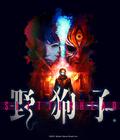
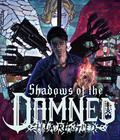

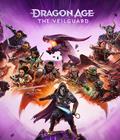
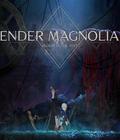



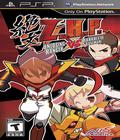 Z.H.P. is an all new IP developed by the same team that brought the Disgaea series. The game retains the same hardcore SRPG aspects of Disgaea, but with a deeper customization feature for the character and even more randomly generated contents in battles.
Z.H.P. is an all new IP developed by the same team that brought the Disgaea series. The game retains the same hardcore SRPG aspects of Disgaea, but with a deeper customization feature for the character and even more randomly generated contents in battles.

























